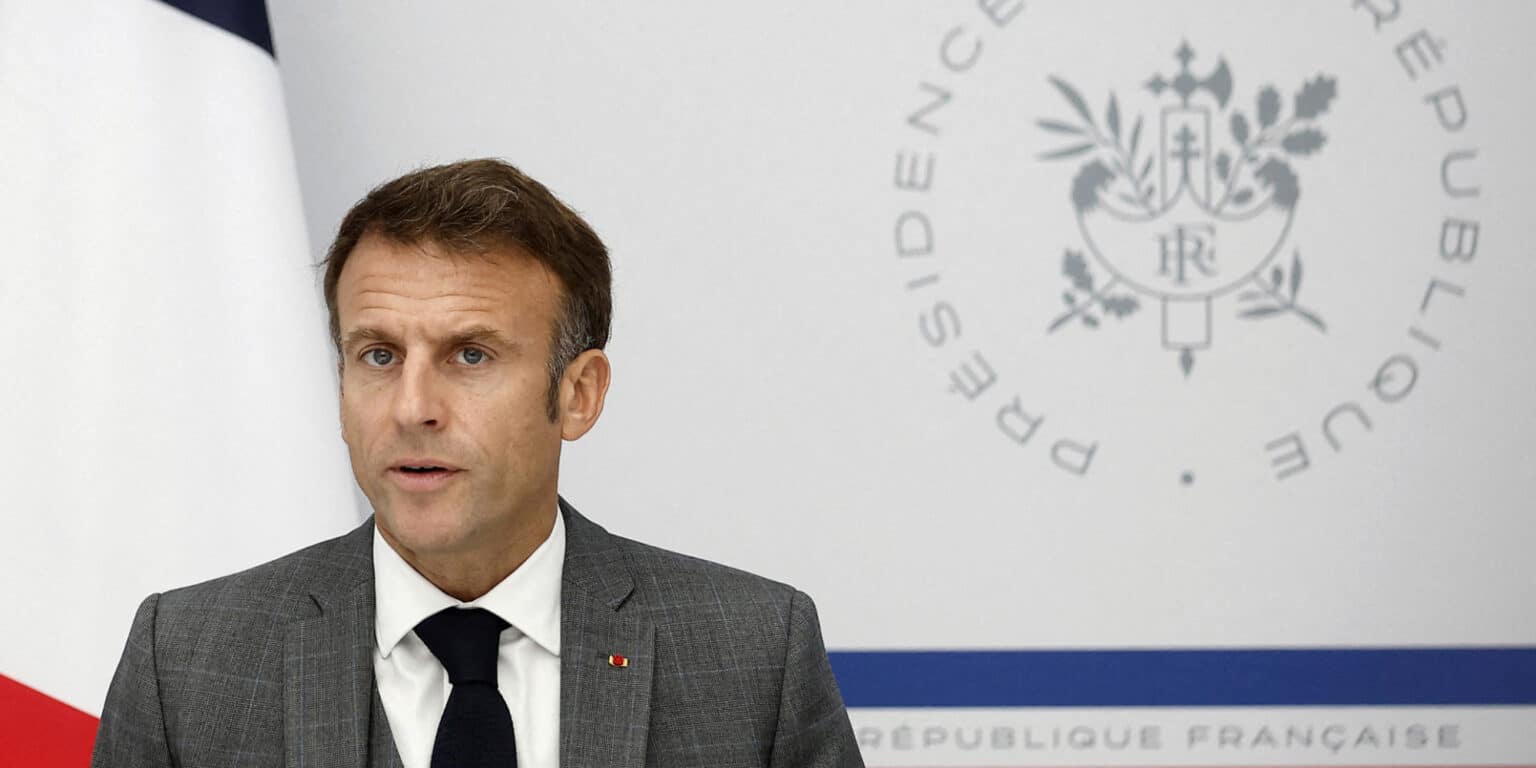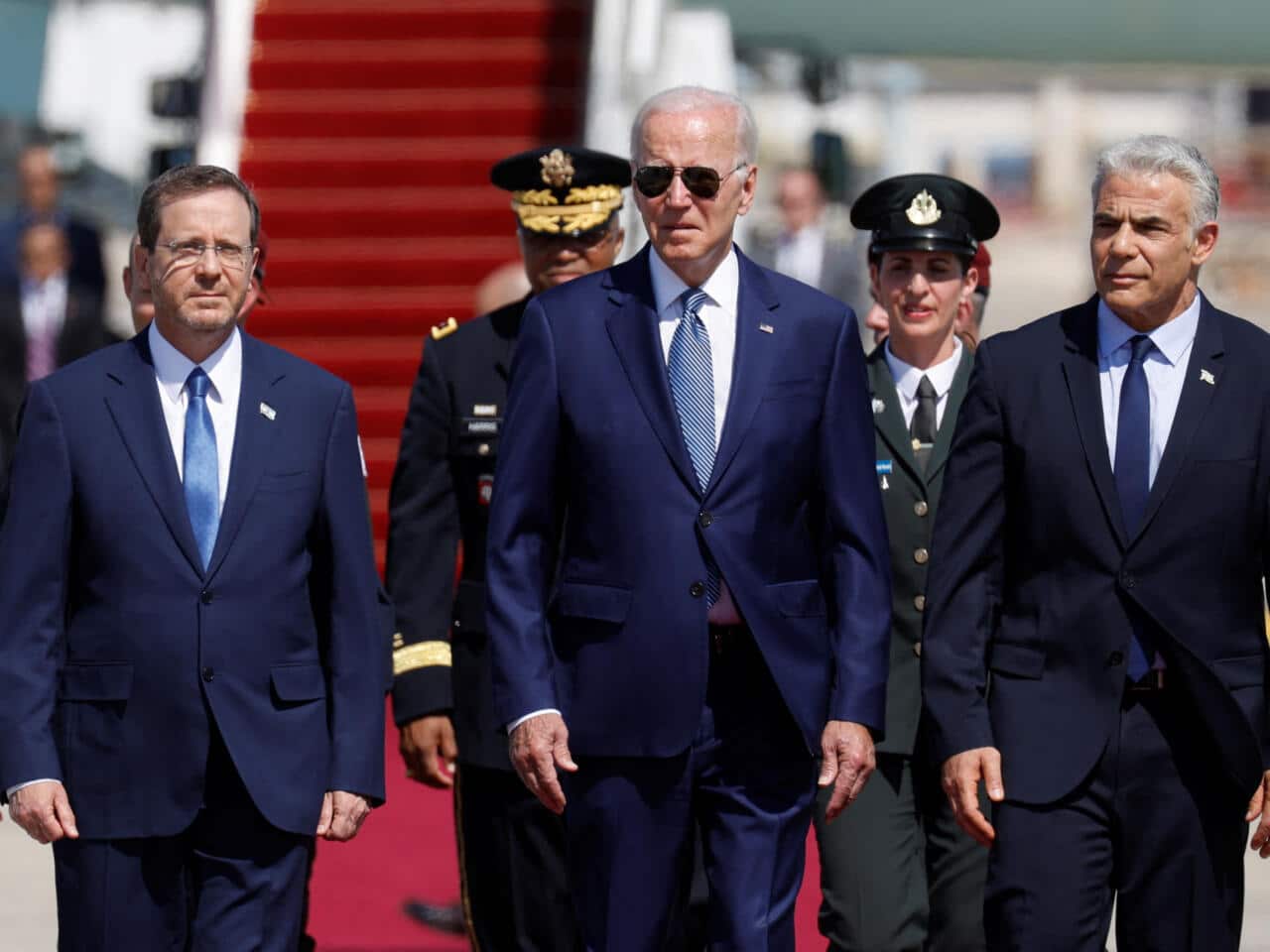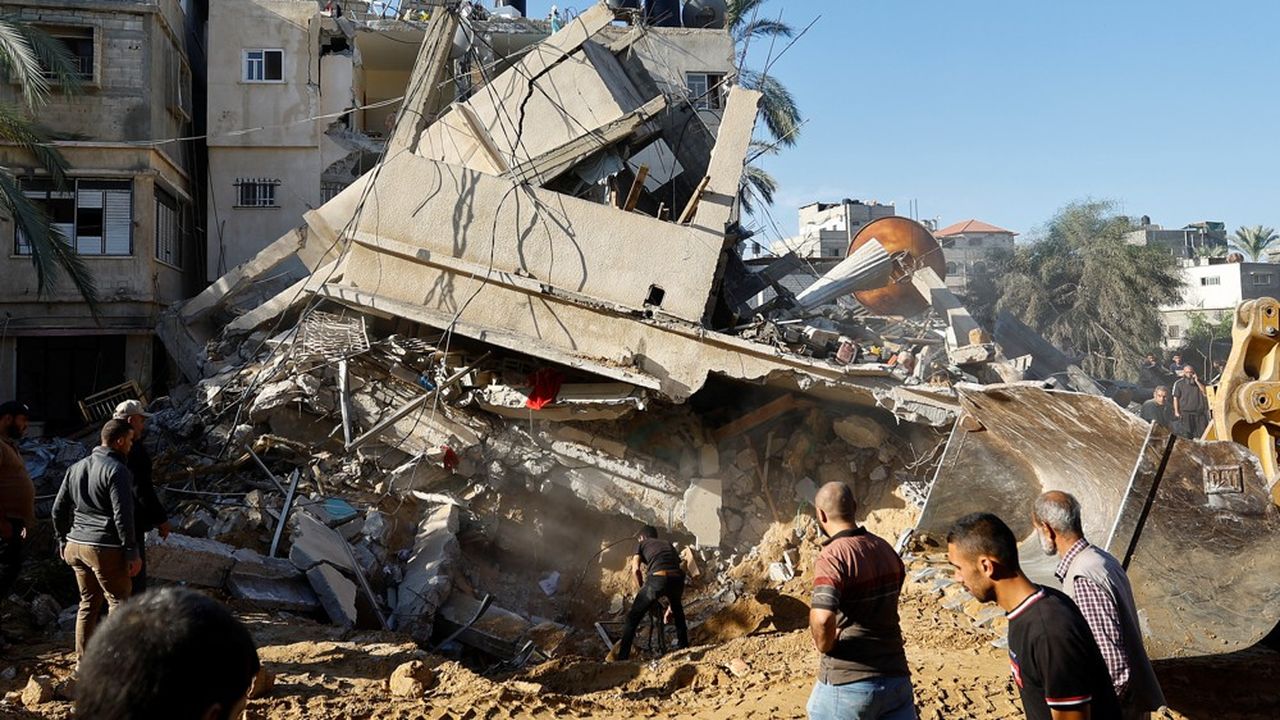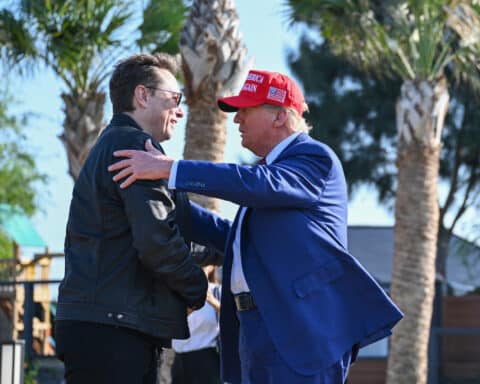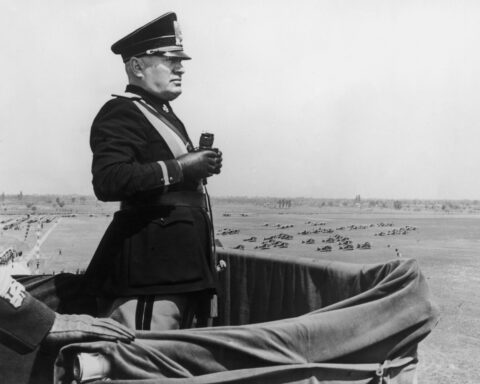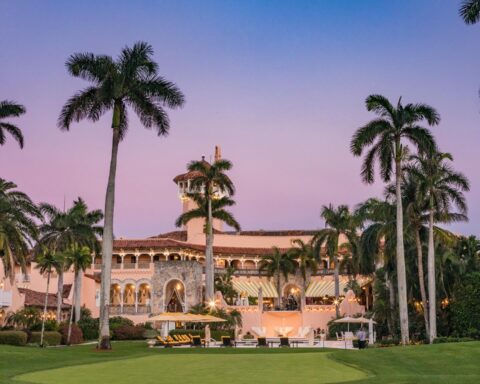Never before has a conflict and a terrorist attack produced so many violent images, sometimes in real time thanks to social networks. a veritable battle of images While Israel has not yet won on the military front, a veritable battle of images has begun between the parties to the conflict. While international opinion is feeling more and more empathy for the Palestinians caught in the pincers between Hamas and the Israeli army, the latter has released images of the October 7 massacre to the press. But even in France, the idea of full support for Israel, an ally, is not without controversy.
The conflict in the Middle East is not abating, and the alliance games have been set in motion. As with Ukraine, the stakes are too high not to take a stand. President Joe Biden had initially planned a series of meetings, first with the Israeli Prime Minister in Tel Aviv, then with Arab leaders in Jordan. However, following the strike on a hospital in the besieged Gaza Strip on Tuesday October 17, King Abdullah II of Jordan cancelled the planned meeting between the US President, Egyptian President Abdel Fattah al-Sissi and Palestinian President Mahmoud Abbas. In the end, the US President was only able to meet the Israeli Prime Minister.
Following these events, demonstrations broke out on Wednesday in the West Bank, Jordan, Lebanon, Tunisia, Iran, Libya and Yemen. Numerous rallies also took place outside the embassies of major Western powers, including the USA, the UK and France.
On Wednesday October 18, while Joe Biden was informing journalists in Tel Aviv that he had succeeded in convincing Israel to authorize limited humanitarian aid to the Gaza Strip, the United States vetoed a UN Security Council resolution calling for “humanitarian pauses” to allow aid access to the Palestinian enclave. And Uncle Sam continues to send heavy weapons and troops to the region in support of Israel…
Western divisions
For the first time since the Hamas attack on October 7, France has taken a different position from that of its Western allies on the Security Council, voting in favor of the resolution proposing humanitarian pauses. In a press release, the French Foreign Ministry expressed its “regret” at the failure of the Security Council to adopt a text they considered adequate, according to their representative at the United Nations, Nicolas de Rivière.
US vetoes Security Council resolution that would have called for “humanitarian pauses” to deliver lifesaving aid to millions in Gaza
Favor: 12 (Albania, Brazil, China, Ecuador, France, Gabon, Ghana, Japan, Malta, Mozambique, Switzerland,UAE)
Against: 1 (US)
Abstain: 2 Russia, UK pic.twitter.com/y4tiAbRMUQ— UN News (@UN_News_Centre) October 18, 2023
At an emergency European Union summit on Tuesday, several leaders warned that failure to support the rights of Palestinians in Gaza could expose Western states to accusations of hypocrisy, as reported by the Financial Times quoting several officials. The President of the European Commission, Ursula von der Leyen, was also strongly criticized for not explicitly calling on Israel to respect international law in its conflict with Gaza during her visit to that country the previous week.
Meanwhile, Ireland’s Prime Minister, Leo Varadkar, publicly declared that the European Commission President’s comments “lacked balance” and insisted that she “did not speak for Ireland”.
“Europeans are beginning to worry about being perceived as not defending international law. Ursula von der Leyen’s stance of unreserved solidarity with Israel was seen as unilateral, making them lose their power of attraction in the South. Europe depends more on soft power than the United States, which often relies more on hard power, even if this is proving increasingly counter-productive”, analyzes Sarang Shidore, Director of the Global South Program at the Quincy Institute.
The question, however, is how long Brussels will continue to tolerate Israel’s repeated destruction of EU-funded infrastructure in Gaza. The 27 member states have long been divided on this issue, but until now the debate has taken place in private. If the EU decides to take this issue public and make it a political issue, it could certainly count on significant support from the countries of the South. As for the United States, its influence could continue to wane, giving way to the rise of Russia and China, two countries seeking to redefine the world order.
The war of images
The conflict between the Palestinian Islamist movement and the Jewish state is also taking place at a distance, through the screens. It has become a war of images. On Wednesday evening, an Arab channel broadcast a video presented as unedited, showing the liberation of a woman and her children by Hamas. In a statement, Hamas declared that it had released the three Israelis, without specifying the date of their release. The Israeli authorities described this as a communication maneuver. The scene is said to have taken place on Saturday, the day of the attack. The Israeli authorities identified the woman as Avital Aldjem, a resident of Kibbutz Holit who had already been interviewed on television on Monday.
This communication war began simultaneously with the attack. As soon as the attack took place, Hamas posted a large number of images on its social networks, seeking to demonstrate its professionalism through training videos. Hamas also uses images to inspire fear. Social networks have become a battlefield where Israelis discover the death of their loved ones taken hostage. In response, the Israeli army broadcasts almost hourly accounts of the violence committed on October 7 to win the battle of international opinion.
This battle of images is reminiscent of the information overload that accompanied the outbreak of war in Ukraine in February 2022. The widespread use of cell phones and their cameras, combined with the massive use of social networks, creates visible conflicts in real time. Anyone can instantly share a photo or video, with no absolute guarantee of its veracity.
“Today, the level of misinformation is such that an honest outside observer simply seeking information would find himself prey to permanent doubt. This is a very powerful driver of conflict, since not knowing which foot to stand on in relation to the information you have means running the risk of being swept away by the one who makes the most noise. And the information environment is a decisive component of warfare,” analyzes Hugo Micheron, PhD in political science.
Ophélie Coelho, a specialist in digital geopolitics, looks at the informational format made possible by social networks. “There’s an immediacy, an ability to disseminate information very quickly, which is often simplified to the extreme since we have very short content. This extreme simplification means that users have few options, or at least no reflex to look further afield. This shapes our ways of thinking, and today, when we talk about the fact that companies are going to try to stimulate, or at least recover, our attention spans, our available brain time, we’re right in line with these mechanisms when it comes to propaganda.”
Big Tech influence
In accordance with European directives, social networks are required to moderate such content. However, on X (formerly Twitter), content management has become unstable since the platform was acquired by Elon Musk, who has yet to comment on the conflict. This new situation could also create problems for TikTok, a Chinese platform where videos proliferate.
“Europe is the world’s largest digital space. It’s 1.5 times the size of the American digital space. And yet, Europe has no social networks. So you have GAFAM, which belongs to the United States, and you have Russian or Chinese social networks. And we have no algorithmic sovereignty. The reality is that we use them, but we don’t own them. And it’s very complicated to regulate something you don’t own, which is what Thierry Breton is trying to do,” emphasizes Hugo Micheron.
The European Union’s supervision of Big Tech thus has certain limits.
“There are gateways to the market and to information that need to be regulated, or at least monitored. The problem is that when we talk about disinformation, we come up against a problem, particularly in our societies, which is to confront on the one hand freedom of expression and on the other excessive regulation that could hinder freedom of speech. As far as Europe is concerned, the DSA must regulate the platforms, but only if they agree,” points out Ophélie Coelho.
Under the leadership of Elon Musk, X has significantly reduced the number of its moderators, transforming the platform from a space for news debate into an arena for diverse opinions and misinformation. Now, among X, Telegram, but also TikTok and Meta, all of which are the subject of EU investigations, social networks are becoming channels for the dissemination of images, whether genuine or misleading, and which tend to inflame certain partisan bubbles.
In any case, a veritable battle of images is raging on social networks. While public opinion is stirred by images of civilians killed by bombs or thrown onto the roads in the Gaza Strip, following the shelling of Hamas positions, Israel retaliated with an unprecedented press conference. For three quarters of an hour, it showed unbearable images of the October 7 massacre.
Macron visits the Middle East
On Tuesday October 24, Emmanuel Macron visited Israel to express his solidarity with the Israeli people and their leader, Benyamin Netanyahu, to whom he offered his condolences. “Our two countries are bound by the same mourning”, added the French president, while his Israeli counterpart promised once again to “destroy Hamas”.
Following his visit to Israel, Emmanuel Macron travelled to Ramallah in the West Bank for talks with the President of the Palestinian Authority, Mahmoud Abbas. At the end of the meeting, the French President conveyed to the Palestinian leader his “condolences to the Palestinian people” who are experiencing “great distress”, and to “all the victims of the spiral of violence engendered by the Hamas terrorist attack”.
For Emmanuel Macron, the Hamas attack on Israel is “also a catastrophe for the Palestinians”, stressing that “nothing can justify the suffering” of Gaza’s civilians. “A Palestinian life is worth a French life, which is worth an Israeli life”, he added. “We share the same position, the rejection of all violence,” continued Emmanuel Macron. “Hamas does not represent the Palestinian people. France maintains its support for Palestinian civil society and the Palestinian Authority”, he stressed, announcing “exceptional aid” from France for Palestine.
Mahmoud Abbas, for his part, called for a “total ceasefire” in the Gaza Strip, denouncing the “responsibility of Israel and those who encouraged the country to continue its acts of aggression” in Gaza.
Another statement by the French President raised a few questions: that of “building a regional and international coalition” to “fight” the terrorist organization based in Gaza. In France, France insoumise leader Jean-Luc Mélenchon immediately reacted on X, denouncing a “return to the war on terror theory of G.W Bush and the neoconservatives”. François Ruffin, LFI deputy, reacted in turn on X: “confusion and improvisation: in Israel, that’s Macron’s record”.
So, in France, politicians are at each other’s throats, to the point of saying that the conflict could become the new Dreyfus affair.
Read also >THE MIDDLE EAST FLARES UP AGAIN
Featured Photo: ©Press




